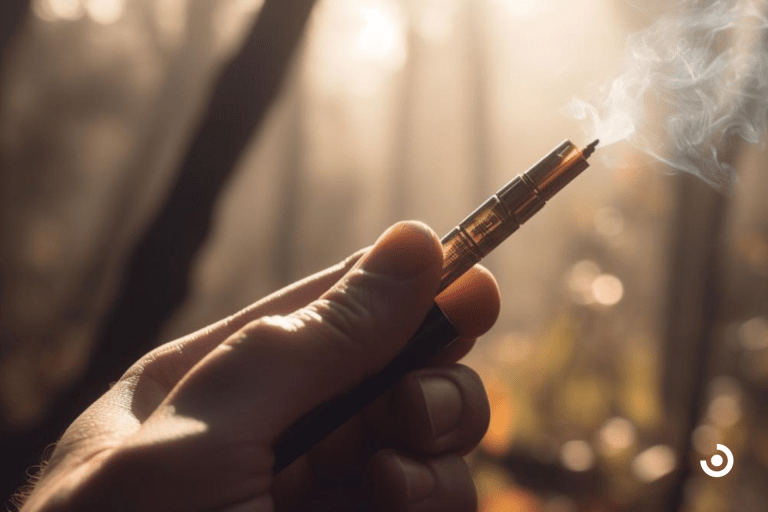Amphetamine Addiction
Can medical marijuana help patients who suffer from symptoms of amphetamine addiction? Read below to find out more.
What are amphetamines?
Amphetamines are a type of stimulant that treats attention deficit hyperactivity disorder and narcolepsy. They work by using the dopamine reward system of the brain. When these drugs are used, the central nervous system is stimulated, which causes the brain to produce a higher level of the neurotransmitter dopamine. This dopamine increase in the brain creates a euphoric feeling and overall well-being, but the comedown is rather brutal. Common street names for these drugs include speed, bennies, and uppers.
Types of Amphetamines
Dextroamphetamine and methamphetamine are two primary types of amphetamines. Both prescribed by a doctor and street amphetamines can be misused and cause use disorder. Methamphetamine is the most commonly misused amphetamine. Amphetamine dependence occurs when someone needs the drug to function daily and will experience withdrawal symptoms if they abruptly stop using the medicine.
Signs of Amphetamine Addiction
There are various ways one can recognize amphetamine abuse, including the following symptoms and changes in behavior, according to Healthline:
- Increased heart rate
- High blood pressure
- Loss of appetite
- Weight loss
- Insomnia
- Digestive issues
- Mood swings
- Aggression or Irritability
- Paranoia
- Anxiety and Stress
- Hallucinations
- Inability to keep up with responsibilities
- Missing drugs from a prescription
- Changes in friend groups or relationships
- Loss of interest in previous activities
Current Treatment Options
The following behavioral therapies, often combined, yield positive results in treating amphetamine addiction. They are:
- Cognitive-behavioral therapy. One of the most popular and proven forms of psychotherapy, cognitive-behavioral therapy helps patients identify harmful thought patterns, then change them to affect their behavior positively.
- Motivational enhancement therapy. Motivational enhancement therapy capitalizes on an individual’s motivation to change.
- Contingency management therapy. A goal-oriented and rewards-based system that acts as a contract between clinician and patient, this therapy establishes a ladder of incremental goals with attendant prizes and penalties for successful behavior change.
- Certain prescription medications may be prescribed to help with withdrawal symptoms.
Can medical cannabis help with recovery?
Clinical data from a recent study by the Recovery Research Institute concluded that:
This study showed that CBD, compared to placebo, helped decrease the cue-induced craving and anxiety of individuals with heroin use disorder. Many people with opioid use disorders seek alternative treatments to curb cravings and reduce stress and are reluctant to try agonist treatments such as methadone or suboxone.
This study suggests individuals with drug addiction may benefit from EPIDIOLEX, the FDA-approved CBD addiction medicine. Still, more extensive studies are needed to confirm this as clinical evidence. Individuals seeking to use cannabis, in general, for opioid addiction should proceed cautiously, as with any pharmaceutical drug.
Is medical marijuana addictive?
Marijuana use can lead to the development of a problem with the drug, known as a marijuana use disorder, which in severe cases, can lead to addiction. According to recent studies, 30 percent of marijuana users may have some form of marijuana use disorder. Marijuana users under 18 are four to seven times more likely than adults to develop a marijuana use problem.
Marijuana use issues are frequently linked to dependence, which occurs when a person has withdrawal symptoms after stopping the drug. Irritability, mood, sleep problems, decreased appetite, cravings, restlessness, or various forms of physical discomfort are common among marijuana users. These symptoms peak within the first week after quitting and can last up to two weeks.
Can weed cause a hangover?
The persistent headache and unrelenting upset stomach that accompany a long night of alcohol aren’t always present in a cannabis hangover. That isn’t to say they never happen, but it’s much less pronounced and indirect.
As a diuretic, alcohol causes frequent urination and depletes your body’s supply of available hydration, thus leaving you vulnerable to headaches. THC, conversely, is known to decrease saliva secretion — “cottonmouth” — but that’s not the same as full-body dehydration. No clear evidence exists to suggest that smoking marijuana causes dehydration. However, failing to counteract dry mouth by staying hydrated can lead to dehydration, triggering headaches.
Typically, only mild nausea (if any) occurs during a weed hangover, usually nothing so wrong that you couldn’t try to eat something to feel better. Remember also that THC also works as an appetite stimulant.
What Is Cannabis Use Disorder?
The phrase “cannabis use disorder” denotes a specific condition with relatively narrow clinical parameters. Heavy cannabis users’ recreational use, without more, isn’t enough to trigger the distinction, but those susceptible to amphetamine addiction may fall victim to this disorder more quickly than others.
According to the Diagnostic and Statistical Manual of Mental Disorders, Fifth Edition (DSM-5) — published by the American Psychiatric Association — the following criteria are indicative of a potential cannabis use disorder:
- Prolonged marijuana use despite physical or psychological distress
- Prolonged marijuana use despite social or relationship problems
- Marijuana cravings
- Difficulty controlling or reducing cannabis use
- Prioritizing cannabis in favor of other activities
- Problems at work, school, and home as a result of marijuana use
- Marijuana use dominates one’s daily schedule.
- Risky behaviors during/after marijuana use
- Using more cannabis than is typical
- Cannabis tolerance
- Cannabis withdrawal symptoms include emotional distress, difficulty sleeping, and decreased appetite; cannabis withdrawal begins within the first seven days of abstinence and subsides after a few weeks.
A cannabis use disorder diagnosis will include at least two symptoms in 12 months. The DSM-5 then assigns grades of severity to cannabis use disorders based on the number of conditions experienced: mild (two to three symptoms), moderate (four to five symptoms), or severe (six or more symptoms).
Conclusion
Evidence shows that certain cannabinoids (particularly CBD) have the potential to help with amphetamine addiction recovery and withdrawal symptoms. Although, it’s essential to remember that THC and other psychoactive cannabinoids may have adverse effects, so check with a trusted health professional before changing your treatment plan.
Last Updated: June 14, 2024
Get Your Medical Card
Connect with a licensed physician online in minutes
Table of Contents
Keep Reading
-
Managing Sleep Disruption As A Side Effect Of Medical Marijuana
Struggling with sleep disruption from medical marijuana? Find out how to regain a peaceful night’s rest and optimize your cannabis journey. Click here for essential tips and tricks!
-
What is Considered a Heroic Dose of Mushrooms?
Unleash your mind with a mind-bending adventure: Find out what truly defines a heroic dose of mushrooms and embark on an unforgettable journey. Get ready to be amazed and click now to dive into the world of heroic dose mushrooms!
-
Does Delta 8 Show Up On Drug Tests
Curious if Delta 8 shows up on drug tests? Discover the truth about this popular cannabis derivative and how it can affect your test results. Click here now to find out!



